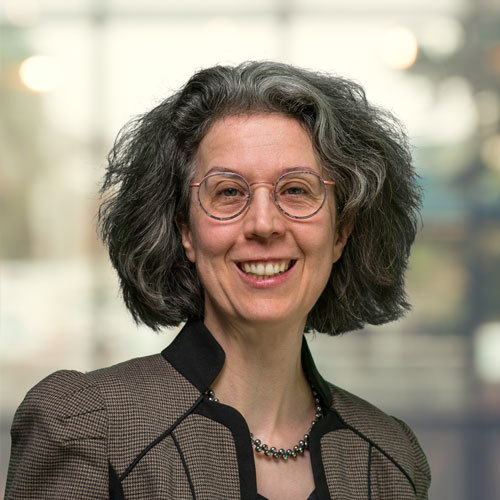
Impact of economic future visions in the Beyond Growth Debate
In response to an increasing focus on sustainable development, planetary boundaries and the limitations of traditional economic models, TNO has carried out a study on 11 alternative economic future scenarios that play a role in the international 'Beyond Growth' debate, including the concept of 'Green Growth'. The study focused on the potential impact of these future scenarios for the Netherlands. Concepts studied include 'Green Growth', 'Degrowth', 'Post Growth', 'Mission Economy', 'The Great Mindshift' and 'Broad Welfare'. Although the study highlights innovative ideas, we conclude that the future scenarios for society and the paths towards them are not yet clear and complete.
Curious about the research?
Read the reports:
Research questions and main conclusions
Stephan Slingerland, co-author of the study, explains: "TNO has examined the relationships between the different economic concepts and the views of future societies that they propose. We have analysed policies and actions needed to realise these world views, and the roles of different stakeholders that they would imply. We have also investigated the underlying implicit assumptions, potential risks and side-effects of the concepts.
Our analysis of the beyond growth debate shows that the visions about how our future society and welfare should look like diverge widely. With a scenario approach, TNO can contribute to clarify key choices for the future."
Three categories of alternative economic concepts
In the study, we divide the concepts into three main categories:
- concepts that are mainly based on current social norms and values, such as Green Growth;
- concepts that require a change in these norms and values, such as Degrowth and Post Growth;
- concepts that seek to provide a value-neutral set of indicators, such as Broad Welfare.
The three categories of alternative economic concepts also differ in the importance they assign to economic growth.
The first group considers economic growth necessary to achieve environmental and social objectives. The second category puts environmental and social objectives first and views positive or negative economic growth as a secondary outcome. The third group makes no normative statement on the relative position of economic, environmental, and social objectives.
Role of government
Another key difference between the alternative economic concepts studied is the extent to which they consider direct government control necessary. For instance, the Mission Economy advocates that the government plays a strong and direct role in technological innovation decisions.
Green Growth anticipates a leading role for companies in these decisions once the government has defined the boundaryconditions of the market. Great Mindshift assumes a highly decentralised world, in which initiatives by innovative citizens, businesses, and NGOs are the main drivers in the transition to a sustainable society.
Degrowth and Post Growth, besides advocating more decentralised solutions, in practice also contain many policy proposals that can only be realised with strong central government control.
Innovative ideas but still too unspecific
The study shows that the concepts contain a variety of innovative ideas, but both the future scenarios for society they outline and the paths towards them are not yet sufficiently clear and complete.
For instance, the impacts of propositions such as a progressive tax on consumption accompanied by a reduction in the tax on labour would require further investigation. The same goes for other innovative proposals in the debate, such as substantially reducing the average working hours in the Netherlands, integrating informal care into the economy or accelerating the phasing out of fossil fuel industries.
The study also concludes that there is not yet sufficient scientific evidence to support the fundamental underlying assumption of Green Growth, namely that a complete decoupling of economic growth from negative environmental impacts is possible.
Four routes for further substantiation of the concepts
Based on the findings of the study, we recommend further research into the potential impact of the alternative economic concepts.
Four possible routes for this are:
- Further elaborating the described visions of society, the corresponding routes towards social and economic change, and their possible advantages and disadvantages;
- quantifying the potential impacts;
- analysing individual policies and policy experiments already deployed;
- examining public support for possible changes, particularly when it comes to changes in norms and values.
Follow-up research with 4 societal future scenarios
In the Horizon Europe project Multifutures, TNO, together with partners, has conducted a further quantitative and qualitative analysis of the Beyond Growth debate. The report ‘Mapping and analysis of alternative growth paradigms’ (pdf) , concludes that the numerous proposals in this debate can be summarised into four distinct future scenarios for a sustainable and prosperous society, along with the pathways to achieve them:
- Green Growth
- Mission Economy
- Post Growth
- Great Mindshift
These four visions fundamentally differ in their approaches to economic growth, government steering, and behavioural change, collectively encompassing the main points of contention in the debate. They provide policymakers and strategic planners with a framework to visualise early-stage choices for the 'goal on the horizon' and the routes to get there in their projects.
Get inspired
Webinar: The energy and wellbeing impact of streaming

Energy communities: from neighbourhood initiative to a key link in the energy transition


Climate fund applications from the perspective of broad prosperity


Local authorities see energy support as a key transition enabler in tackling energy poverty


Public support




